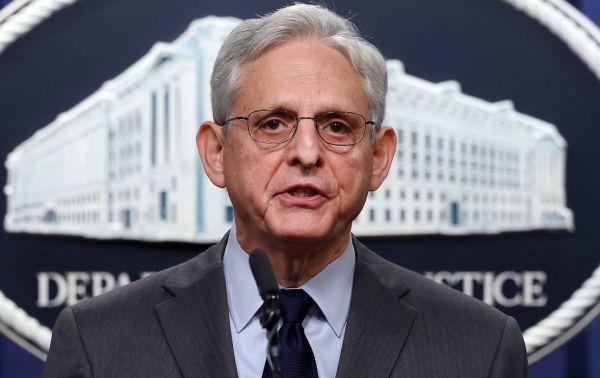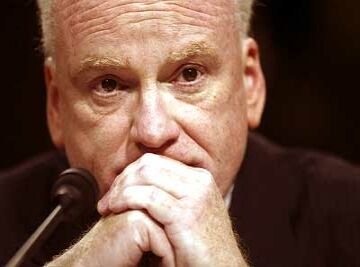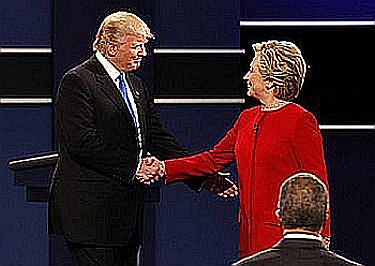Our Diminished Debate
From The New CriterionAs I write, the media world continues to debate what she said, since the noise of the crowd at the U.S. Open Tennis Tournament drowned out at least some of her words. By one account, those words included: “I swear to God I’m f****** going to take this f******* ball and shove it down your f****** throat. You hear that? I swear to God.” Another subtracts one of these bits of improbable fornication and the double reference to the Almighty, making the threat only a hypothetical one: “If I could, I would take this f****** ball and shove it down your f****** throat.” A third account has it that this implied threat was unambiguously aspirational, in a detached and merely fanciful way: “I wish I could take this f****** ball and shove it down your f****** throat!” — as if to say that, in spite of the vehemence of the language, both Serena Williams and her interlocutor, a female linesman, both knew that this wasn’t going to happen. On the other hand, the linesman herself, who was presumably in a better position to hear the words than anyone else, apparently heard a threat against her life, which Miss Williams was overheard denying she had made.
Being “in the moment,” as she later put it, she claimed to be unable herself to remember what she had said, but whatever it was she had no regrets about it. “An apology? From me?” said the puzzled superstar in answer to a question from the press. “Well, how many people yell at lines-people? If you look at all the people that kind of yell at lines-people, I think it kind of comes sometimes. Players, athletes get frustrated. I don’t know how many times I’ve seen that happen.” You’ve got to admit she has a point. Though she was later shamed into making a grudging apology, she could not but have been aware that one of the privileges of celebrity is the right to have one’s sense of injustice against the world listened to by all — and be taken much more seriously than that of non-celebrities. One of my favorite “Dennis the Menace” cartoons from (I think) back in the days when the late Hank Ketcham was still drawing it, shows Dennis and his little friend Joey alone together as Joey is howling with anger or pain. “What are you crying for, Joey?” a bemused Dennis asks him. “There aren’t any grown-ups around.” Being a celebrity means being a spoiled child with the right to assume that one is permanently in the presence of solicitous grown-ups.
Only the day after Miss Williams’s outburst, which cost her her semi-final match against the eventual Open champion, Kim Clijsters, another bona fide celebrity, the rapper Kanye West, marched onto the stage at the MTV Video Music Awards ceremony and interrupted the acceptance speech of the 19-year-old winner in the Best Female Video category, Taylor Swift, seizing the microphone from her in order to make his opinion known, both to his fellow celebrities there present and to the television audience at home, that another candidate, known as Beyoncé, had produced the superior music video. It was a stunt he had performed at several previous awards ceremonies, though always before on his own behalf. Back in 2006, for example, he had stormed onto the stage at the MTV Europe Music Awards in Copenhagen to protest that the award for Best Video had gone to someone other than himself. At least on this latest occasion his sense of cosmic justice was outraged on behalf of another, although he was said to have been drinking heavily beforehand and afterwards issued an apology to Miss Swift (and her mother) on his blog — which almost counts as an act of grace on the part of someone who had said, after the Copenhagen incident, “If I don’t win, the awards show loses credibility.”
His own credibility, needless to say, has never appeared to be in any doubt, though he once appeared on the cover of Rolling Stone as Jesus with a crown of thorns on his head. Just a touch over the top? Not at all! Like Madonna’s staged crucifixion on a luminescent cross which formed the highlight of the show on her most recent American tour, the self-identification with the suffering Christ was only making explicit the monumental self-conceit and — the other side of the same coin — self-pity that are part of the contemporary celebrity’s birthright. So too, is the right publicly to pronounce on matters of political interest. Mr West had first caught the attention of the un-rapped public when at another televised event, a benefit for the victims of Hurricane Katrina in 2005, he had deviated from the script to aver that “George Bush doesn’t care about black people.” In the world of popular music, of course, that hardly even qualified as a controversial statement. Russell Brand, the British comedian who was the host of this year’s VMA ceremony for the second time in succession, got a headline or two out of last year’s ceremony by taking the occasion to call then-President Bush a “retard.”
Miss Williams’s and Mr West’s celebrity cris de coeur provided an interesting coda to a week in which the ever-diminishing segment of the news not devoted to celebrity opinions or celebrity gossip had been dominated by, in no particular order, President Obama’s televised address to a joint session of Congress on the subject of health care and the shouted comment, “You lie!” — presumably addressed to the President — of Congressman Joe Wilson, who represents South Carolina in the Republican interest, which had rudely interrupted it. Like Mr West, Congressman Wilson swiftly apologized for his lapse of decorum; like Miss Williams, he pleaded in mitigation that his patience had been overtaxed. “I have respect for the President — I have respect for the office of the presidency. I would never do something like that again,” he said. “I just felt so provoked.” But his apology was deemed insufficient by some members of the other party determined to treat the humble Congressman’s arrogation to himself of the celebrity’s privilege as a harbinger of the apocalypse. As I write, Politico is reporting that “a defiant Rep. Joe Wilson says he has no plans to make further apologies to President Barack Obama or House Democrats, setting up a showdown this week” with House Democratic leaders, who are “pushing a ‘resolution of disapproval’ against him.”
I predict that this one will run and run. Within a day or two, USA Today and The Washington Post, among other media outlets, were bundling the two celebrity outburst together with the Congressman’s as the latest evidence that, in the words of USA Today, “incivility is storming the gates.” I found it odd, however, that no one thought to ask which was the odd one out in this trio. Surely, it must be a matter of some public interest when a mere congressman starts behaving like a celebrity. President Obama as a celeb is one thing, but the representative from the second district of South Carolina? Perhaps he had learned the trick from former Governor Rod Blagojevich, whose book came out the same week, that if you’re not a celebrity already, bad behavior can make you one. We may all start to worry when the manners and mores of the celebrity culture figure in the ongoing political “debate,” though that word is ever more inappropriate. As the thing that it once signified has almost died out, thanks in no small part to the celebrity culture, it might as well be used for this kind of competitive grievance-mongering — what Michael Kinsley calls “the Umbrage Wars” — which has so nearly taken its place.
Congressman Wilson himself must have been aware at the time of his boorish intervention that it could not have been a contribution to “debate,” in this old-fashioned sense, but instead signified debate’s obsolescence. So, for that matter, had the President’s speech. For a week or more before he gave it, the media were full of anticipations, both pro and con, of what he would say. They treated his words, even before they were uttered, as being equivalent to deeds, and mighty ones, which was a further proof, if any were needed, that he, unlike some no-name Congressman, was entitled to the celebrity’s privilege.
That must be why his rhetorical reformation of the nation’s health care provision was treated by the media as being tantamount to the thing itself. And the thing itself glittered enticingly in the middle distance well before the President once more took it out of the garage to show it off. Who could not admire this dazzling utopian vision of universal and improved health care for less than we are now spending on non-universal, unimproved health-care? Small wonder that the media’s reviews were all so positive (“a broad and forward thinking speech” with “a touch of greatness” — Keith Olbermann; “Obama came across like Jimmy Stewart in Mr. Smith Goes to Washington: a bright- eyed young idealist up against entrenched power, old ideas and obstructionism” — Tom Shales) that no one thought to warn of that annoying residual difference between politics and performance, close as the two so often are these days. It was easy to share Congressman Wilson’s sense of frustration, if not the method he chose for expressing it.
Not that that was any excuse for him. I am very far from approving of such an outburst — so far, indeed, that I would eschew the word “lie” even if it had come during the Republicans’ turn to talk. It’s an old-fashioned prejudice, I know, and no one ever took any notice of it when I protested in these pages (see “The Scandal Lobby” in The New Criterion of November, 2002) against the frequent accusations by Democrats of bad faith on the part of the late, unlamented Bush administration. Indeed, during the Bush years, the charge which was once considered to be — as it still is in Britain — censurable as “unparliamentary language” had became so routine as to have become a rhetorical tic on the part of that President’s many detractors, of whom this President was one. That their bad habit has yet to be broken was demonstrated by Mr Bush’s successor when, only moments before Representative Wilson’s unfortunate intervention, he accused his Republican opponents of uttering “a lie, plain and simple.” It should be unnecessary to add that the parliamentary stricture against the use of the words “lie” and “liar” applies also to the executive, which was why (according to legend, anyway) Winston Churchill had to invent the euphemism of “terminological inexactitude.” Oddly, however, none of the many who criticized Representative Wilson so trenchantly, or none that I read, seemed to have noticed the President’s own lapse from civility and decorum.
This had come in reference to the now-famous “death panels” introduced into the health care debate by former governor (and vice-presidential nominee) Sarah Palin, whom he did not mention by name. The words preceding those quoted above referred to “the claim, made not just by radio and cable talk show hosts, but prominent politicians, that we plan to set up panels of bureaucrats with the power to kill off senior citizens. Such a charge,” he added, “would be laughable if it weren’t so cynical and irresponsible.” Well, yes. “Cynical” implies that this false claim by unnamed “prominent politicians” was made in the knowledge that it was false. But its falsity depended on his use of the word “plan.” It was true that there was no such plan qua plan; it was not true, however, that the plans there were and (at time of writing) still are — to make the government, in effect, a major provider of health care — do not imply the rationing, at some point, of health provision, or that this rationing does not, in turn, imply bureaucrats with the power to deny care on any grounds they choose, or that among those grounds there are highly likely to be considerations of the “quality of life” of senior citizens declining toward their ends.
The President himself said as much in an interview last spring with David Leonhardt of The New York Times Magazine. Therefore, if Mrs Palin’s claim was a lie, it was so at most only in a technical sense and hardly “a lie plain and simple.” Yet the President’s incendiary charge against her — at least, it would once have been incendiary — of bad faith in the same speech was not even noticed by the media who were so eager to proclaim “the end of civility” upon the intervention of Congressman Wilson a few minutes later. As the media had themselves been calling the “death panel” claim a lie at one remove (it had, they said, been “widely discredited”) for some weeks past at that point, it was hardly surprising that they should not have found any fault with the President for calling it one. But by the logic of their own cries of incivility against the Congressman, the shame of his charge lay not in its truth or falsity but in his having made it at all. By that logic, the media have been giving a pass to the Democrats for the same sin against our national comity for nearly a decade now. What did they think was going to be the consequence for the civility of discourse under a Democratic president? Yet Maureen Dowd was far from being the only commentator who saw in Mr Wilson’s challenge evidence that “some people just can’t believe a black man is president and will never accept it.”
“No Democrat,” she insisted with a straight face, “ever shouted ‘liar’ at W. when he was hawking a fake case for war in Iraq.” No! They shouted it behind his back. Constantly and tediously and, it must be said, without the slightest shred of proof for eight years — for had not Jonathan Chait called President Bush a liar on the cover of The New Republic even before 9/11? — and yet it was Congressman Wilson whom she labeled, with her finely-honed feminine instinct for the jugular of masculine amour propre, as a “milquetoast” for saying it, once, to this President’s face. It might appear astonishing to a foreigner that she thought she could get away with such rhetorical double-dealing, but long familiarity with the ways of the media teaches us that it is no unusual thing. She could not have hoped to pass off her own weaselly evasiveness unnoticed without the presumption, shared by everyone she knows or is ever likely to read, that both mendacity and bad manners are things that only one side of the political divide could conceivably be guilty of.
Moreover, ill-advised though the Congressman’s shout may have been, the frustration which it expressed cannot have been unconnected with the media’s willingness to take everything the President said at face value. His claims on behalf of the various reforms under consideration and, in particular, on behalf of their fiscal responsibility (“I will not sign a plan that adds one dime to our deficits, either now or in the future. Period”) would never have been allowed to lie unexamined and unchallenged if they had come from a Republican president. It could only have been on the assumption that Mr Obama’s allegedly bewitching oratory was itself an earnest of the reforms he professed in it to seek that the speech had been treated with so much excitement and expectation in the first place, even before he had given it. “Lie” is an ugly word, inevitably inappropriate in all but the most extreme cases — at least it used to be so before it became so common during the previous administration — but there are many degrees of disappointment at the gap between word and deed that would be better described by other words, and yet that remained and still remain utterly unexplored by the media, through whose mercilessly skeptical filters we once expected to receive our news.
As is so often the case, “media bias” proves a less-than-satisfactory description of a process that goes well beyond mere matters of bias and partisanship. This is the ever-expanding moralization of politics, which is a feature not just of the media culture but of the culture generally, and which is both cause and consequence of the celebrity culture. Rational differences between men and women of good-will seem to diminish in number all the time, along with the debate (properly so called) between them, and on the right almost as much as on the left, so great is the enthusiasm in all quarters for finding questions of right and wrong, good and evil behind every political division. This increase in demand for moral purity places a premium on Obama-like avowals of good intentions while discounting the sordid calculation of those intentions’ practical consequences, should anyone of less than perfect intentions be bold enough to calculate them. Of politicians, as of everyone else, the only consideration that counts is that of attitude, and the attitude that counts is one of universal benevolence with taxpayers’ money.
One could not but have been struck by this same, indubitable fact of our political life when reading, watching or listening to the effusions of respect and admiration that blanketed the public space on the death of Senator Ted Kennedy in August. Yet those of us who remembered the Senator’s viciously effective slanders against Judge Robert Bork in 1987, words that made Congressman Wilson’s untimely interjection look like a Valentine to President Obama, could hardly have been surprised that the media praised him for (of all things) his civility. “In these bitter times when anger and contempt seem to become the language of our politics, maybe it’s the old-fashioned joy Ted Kennedy brought to politics that we miss the most and need now,” said Terry Moran of ABC news.
Yet even one long inured to the inanity of the media’s Kennedy-sentimentality must confess to being gob-smacked at the following, written by Melissa Lafsky for the Huffington Post about Mary Jo Kopechne. “We don’t know how much Kennedy was affected by her death,” — by the way, that’s not true, since he was reported to have broken the ice at parties by asking people if they had heard any new Chappaquiddick jokes — “or what she’d have thought about arguably being a catalyst for the most successful Senate career in history. . . [One wonders what] Mary Jo Kopechne would have had to say about Ted’s death, and what she’d have thought of the life and career that are being (rightfully) heralded. Who knows — maybe she’d feel it was worth it.” Anyone capable of such moral imbecility as this can only be lacking in the self-knowledge that comes from the expectation of dialogue with those of different views. Like Maureen Dowd, Kanye West, Serena Williams and Barack Obama, Ms Lafsky is presumably able to live her life well-packed with insulation from any contact with the ghetto of the right-wing media, which is the only place she would normally have any chance of having herself to hear the note of doubt and healthy skepticism that was amplified and distorted in Congressman Wilson’s desperate shout.
Discover more from James Bowman
Subscribe to get the latest posts to your email.






